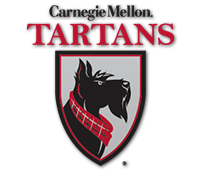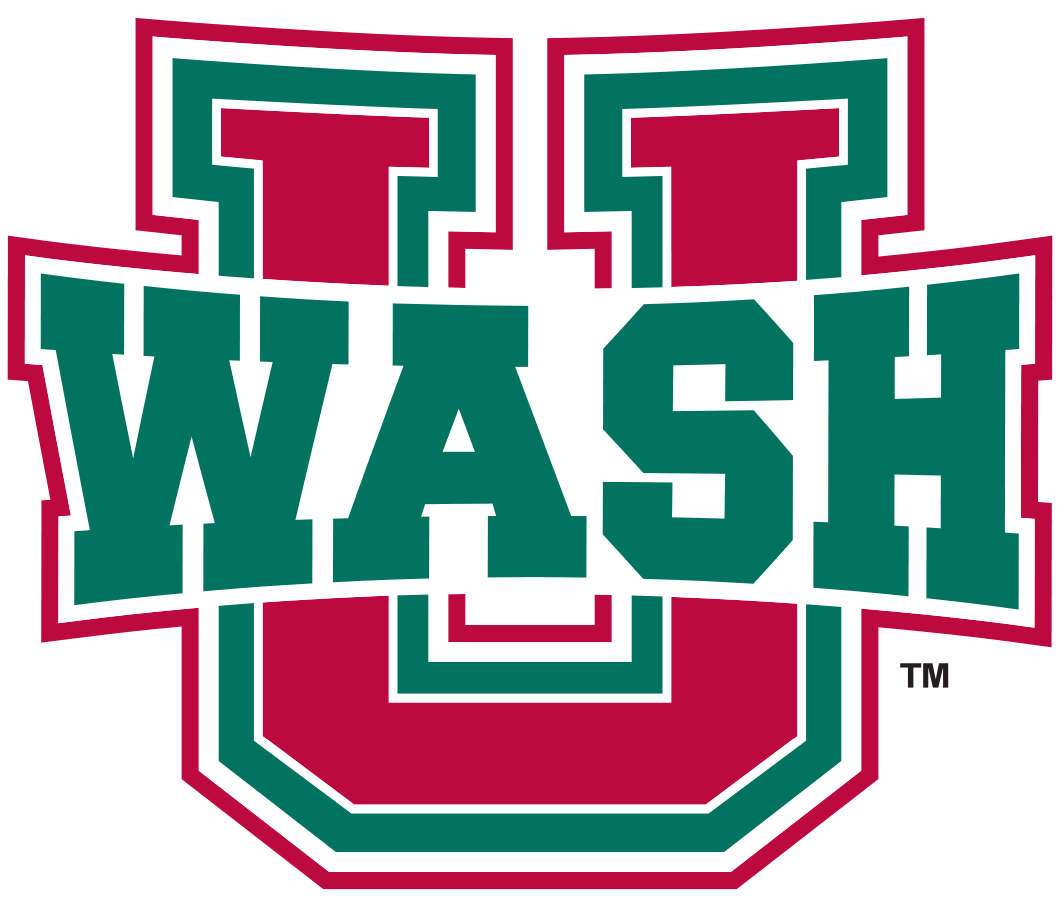
Teri Clemens has always known what it takes to win.
In 14 seasons at the helm of the Washington University volleyball program, her team captured seven national championships, including an unprecedented six consecutive titles from 1991-96. Under her leadership, the Bears won 11 UAA titles and posted a 136-1 record in Association play. She finished her career with a winning percentage of .873 (529-77).
Clemens, who was named to the NCAA Division II 40th Anniversary Tribute Team in 2013, was a three-sport athlete at Truman State University, exceling in softball, tennis, and field hockey. She was inducted into the Truman Athletics Hall of Fame, the Washington Athletic Hall of Fame, the American Volleyball Coaches Association (AVCA) Hall of Fame, the Missouri Sports Hall of Fame, and was honored by USA Volleyball with its “All-Time Great Coaches” award.
Yet Clemens’ greatest victory has come from her most difficult challenge in fighting the debilitating effects of a pulmonary condition and steroid myopathy that eventually confined the once all-around athlete to a wheelchair.
The Beginning at Washington University
Although she did not compete in volleyball in college, she had known she wanted to be a volleyball coach since high school, where she was a setter and attended every volleyball clinic, conference, and match she could. Clemens said she knew in the third grade that she wanted to be a coach and she never wavered. “I was born to coach,” she said. “It is always what I was meant to do.”
The road to Washington University was an unexpected one. After leading Incarnate Word Academy in St. Louis to a third consecutive state title, Clemens was coaching her AAU team at the national championship in Chicago when a Division I coach approached her and told her she had applied to be the coach at Washington University, but did not get the job. Clemens did not even know the program was looking for a coach, but called Athletic Director John Schael to ask if there was an opening and was informed the search had just been reopened.
On her interview day, Clemens spent 12 hours on the Washington campus and told Schael, “I really believe I am your next coach.” Although she lived in St. Louis, she had to get directions to the campus, yet she knew this was where she would be coaching. Schael offered her the job the next morning.
“I remember walking in that brand new gym and saying, ‘I can win at this place.’” Schael asked Clemens how many years she thought it would take to win a national championship. “Five. Four years to get all my own players and then we can win it.” Clemens laughs as she clearly remembered his surprised reaction and him saying, “we haven’t had a national championship in the 104 years of the school.”
Without any collegiate coaching experience, Clemens sought the help of a lot of other coaches. “I was never afraid to learn what I didn’t know.” One thing she did know right from the start was what kind of student-athlete she wanted to recruit. “I went after the most competitive women I could find and also those who were close to their own families,” Clemens stated. “If you were 18 and close to your family, you could understand the family culture I wanted in my program.”
Clemens sought her first recruit on the first day of the job, a day which also included the dedication of the new gym with Howard Cosell present, by calling Lori Nishikawa. Clemens watched Nishikawa at the AAU national tournament and was amazed by her ability. Not knowing that she would be a collegiate coach just a short time later, she asked Nishikawa at the tournament where she was going to college. Nishikawa said she didn’t know, but was looking for a strong academic institution. Remembering that conversation, Clemens contacted her and told her she was now coaching at just such an institution.
“Coach loves to tell people that she recruited my mother because I didn’t say two words during my entire recruiting visit,” recalled Nishikawa, who is now Lori Price and raising two teenage daughters with her husband. “She must have done a great job because my mom was sold!”
Nishikawa not only came to Washington, but the 5 foot-2 inch setter electrified the Division III volleyball world and became the first player in history to be named National Player of the Year twice, the first student-athlete in school history to earn three first-team All-America honors, and led the Bears to the school’s first national title in her senior season. “She was an incredibly competitive player and the gym would be packed to see her play,” Clemens recalled. “In spite of being 5-2, she had 16 solo blocks one year. She just had a wonderful instinct.”
“One of the things I am most proud of looking back is that I was part of the beginning of a legacy,” Price said. “From the very beginning, Coach Clemens taught us about work ethic, pride, and winning. We learned to carry ourselves with pride. No detail was forgotten. Shirts were tucked in, bags were carried on our right shoulders, and then lined up perfectly behind the bench. All of these things led to our continued success on the court and culminated in national championships. More importantly, though, it led to lifelong friendships.”

The 1989 team was inducted into the Washington University Hall of Fame
Clemens brought in another talent who would become a fixture in the program and coach with her for her final 12 seasons, then intramural director at Washington, Joe Worlund. “I had played volleyball and just started going to practices,” said Worlund, who is now the Athletic Director and Interim Vice President for Enrollment at Graceland University after serving 32 years at Washington.
Worlund and Clemens would talk about volleyball for hours. Eventually, he went to Athletic Director John Schael and told him he was interested in becoming the assistant volleyball coach. “I told him this team was going to be good,” Worlund remembered. “I told him there is just something different about Teri.” Later, Clemens went in to Schael’s office and asked him to hire Worlund as her assistant.
“I had played a lot of volleyball, but had never been coached,” Worlund said. “She and I ran four or five camps the summer before I began and she coached me through the game the whole time. By the time the preseason started, I knew what she wanted and had the verbiage down.”

National Success
It was the beginning of an incredible run at the national level for the Bears, who began their streak of six consecutive NCAA titles in 1991. “We started over every year,” Clemens said. “At the beginning of each season, I would say congratulations to those who were on last year’s championship team, but THIS team has never won one. We used the motto ‘same dream, new team’ and we were determined to outwork every other team in practice every day to achieve our goal.”
Jenny (Cafazza) Maurer, now the head volleyball coach at NCAA Division I Bradley University, learned a lot from her playing days at Washington University where she was a two-time All-American and three-time UAA All-Association honoree. “She had an innate ability to know what drove and motivated each person,” Maurer said. “She knew exactly which button to push to get the most out of every player.”
After her playing career ended, Price had the opportunity to coach one season with Clemens. “I am so proud and lucky to have been able to coach on the sidelines with Coach Clemens for one season,” Price stated. “I had always considered her my mentor, but working side by side with her took our mentoring relationship to another level. She shared so much of her coaching knowledge and life lessons with me.
“Playing for Coach Clemens was a great experience for me,” said Amy (Albers) Laczkowski, a three-time first team All-American and back-to-back NCAA Division III Player of the Year in 1993 and 1994. “Along with her competitive spirit, she is a very smart woman and was so great at stretching her players beyond their goals. I learned so much more than just volleyball during the three years I played for her and still use a lot of those skills today.” Laczkowski, who is raising three sons with her husband and former Washington basketball player Tim Laczkowski, was a two-time first team Academic All-American and 1994 Academic All-American of the Year for college division volleyball.
“There were two main things that made the ultra-competitive Teri such a successful coach,” Worlund said. “She had the ability to recruit great players and her practices were like no others I had seen. She put so much effort into making practice fresh and keep it moving along. The players never knew what to expect. She may have a brand new drill two days before the season ended with something else she thought of.”
“Our practices were very intense because we wanted to ‘win’ every drill,” Price remembered. “She didn’t tolerate anything else.”
“Coach Clemens wanted to maintain a connection between the former and current players,” Price said. “When she assigned uniform numbers, she required each player to learn the names of every alum who wore that number. It was always fun to return as an alum. Not only did they know your name, but one of them could tell you what number you wore.”
“Those were such great times,” Laczkowski recalled. “It was a surreal experience. I never felt like we took anything for granted. We all worked very hard and were very determined, but had a lot of fun along the way.”
Clemens recognized the added pressure on her student-athletes being at such a strong academic institution. She rarely played midweek matches at all during her coaching career. “I wanted them to be students as much as possible during the week and enjoy being an athlete on weekends,” she said. “We wanted to outwork everyone else in our practices, but that did not mean practicing longer. These women had other things to do.”
The Pumpkin Man
“We wanted to win, we wanted to laugh,” Clemens said. And they did a lot of both.
Maurer thinks it is fitting that there is a photo of her, Jennifer Martz, and Teri laughing in Clemens’ book “Get With It Girls! Life Is Competition.” The book even includes an entire chapter dedicated to the fun and laughter of those Washington teams.
A self-proclaimed instigator, Clemens was often at the forefront of the good times and laughs. She clearly recalls the time she challenged her players to guess the outcome of an episode of “The Dating Game” without them knowing she had already seen the episode in the wee hours of the morning.
Yet the most lasting source of humor was directed at Clemens herself and it all revolved around a now famous story in the Bears’ volleyball history.
“We were in a Holiday Inn in Rochester for a UAA weekend,” Clemens recalled. “Lori Nishikawa came in to talk to me in my hotel room and the door was ajar. All of a sudden this man dressed as a pumpkin came in the room wielding scissors. He was holding them as though he were looking to stab someone rather than cut something. I grabbed Lori and put her behind me and told him to get out.”
In the middle of the morning (the time ranges from 2-4 a.m. depending on who is telling the story), when Clemens’ phone rang and she assumed it was her wake-up call without looking at her clock. She got dressed and made what she described as nearly a mile walk to the front desk to check her team out of the hotel. On the way, she saw the “Pumpkin Man” in the laundry room and was now even more intent on getting her team out of the hotel.
When the front desk attendant informed her of the time and that is was probably not the best time to check her team out of the hotel, she feared returning to her room and called Worlund. “I think the ‘Pumpkin Man’ called me to lure me out of my room,” she told him.
“I wasn’t going to make that long walk to the front desk in the middle of the night so I told her I would stick my head out of my door and make sure she returned to her room safely,” Worlund recalled. “I see her basically race walking down the hallway and into her room. About 10 minutes later, I called her and said, “maybe the Pumpkin Man called you to get you out of your room and now he is in there.”
Needless to say, it was a sleepless night for Clemens after looking all through her room for the possible intruder. As she would soon discover, Nishikawa didn’t exactly back up her story and Clemens spent much of the rest of her career seeing pumpkins and people dressed as pumpkins every Halloween and sometimes in the most surprising places.
“I actually did see the ‘Pumpkin Man’ that weekend,” Worlund remembered. “But I can’t say what happened in her room as only she and Lori were there at the time. The best part is not only did the players take the story and run with it, but the parents did as well and would often dress in pumpkin costumes in the stands at the UAA Championship.”
Clemens would find pumpkins all over, including once in her toilet at the hotel. There were signs, phone calls, and of course fans dressed in costumes. Whenever something outlandish was said, she recalls her players saying, “kind of like the ‘Pumpkin Man’.”
“Coach will maintain that she saved my life that day!” Price laughed. “I will allow her to continue to believe so. Suffice it to say, she is quite the storyteller.”
Health Issues
Those Bears’ teams lived by one of Clemens’ favorite and oft-repeated credos that “In this world of give and take, there are few who are willing to give what it takes.”
Those words would come to have even greater meaning as Clemens battled seemingly insurmountable health issues. As a youth, she had been hospitalized numerous times between the ages of four and 10, but her health improved greatly as she began playing sports all the time.
She and her husband Tom had adopted six children in the span of 3½ years culminating in her fourth year of coaching. “Tom would bring all six kids to almost every home match,” Clemens recalled. “At times, all the kids would be asleep in the stands.” The fifth year of coaching, as she predicted to Schael, would be the Bears’ first national title.
However, in her 10th season coaching the Bears, Clemens’ health problems returned with repeated cases of pneumonia. The mother of six young children with a passion for family and coaching was sometimes spending more time in the hospital than in the gym.
She contracted numerous “super infections” and lost count of the number of blood clots (at least 20) and trips to the ICU (more than 30). She had many cases of Methicillin-Resistant Staphylococcus Aureus (MRSA) and was on a respirator 13 different times. One time, she had a terrible swelling in her lower leg and was told they would need to amputate, though fortunately that was not necessary.
The overwhelming health issues were taking their toll on Clemens. She ended up in the ICU on a respirator the night before the team left for the national championship in her next-to-last season and she missed the team’s final matches. She took the spring off and returned to coaching for a 14th season, but announced her retirement during the course of the season, missed the UAA championship weekend, and left coaching for good that December.
That announcement came midway through Maurer’s senior season. “You heard the words, but they didn’t seem real,” Maurer said. “She had been missing more and more trips because of her health. We knew it was a decision she had to make. Nobody wanted it though.”
Clemens was near death so many times in those years and years to follow and credits three important things to her beating all the odds. “I have an extremely strong faith, family, and competitiveness,” she commented. “My competitiveness is my best and my worst trait. In this case, it worked.”
She says her fight was a reflection of her teams at Washington. “What we taught at Washington University is what got me through,” she said. “I had to be resilient. I had to be competitive, to work harder, and of course to never give up.”
Clemens will never be 100 percent healthy again. She still deals with pulmonary issues and blood clots. Her right foot drags a little. Yet she continues to live an incredible life. Her children are now between the ages of 23 and 31 and she still follows volleyball very closely, having served on the National Hall of Fame Committee up until this past summer and watching plenty of UAA matches on video. “UAA volleyball has become what I always wanted it to be,” she remarked. “It is great to not know who is going to win the championship because it is so competitive.”
“I am so proud of the what the UAA is as a leader in how to run a conference with first-class performances,” Clemens says as a proud member of the original UAA. “It is the class of the program across the board that is the UAA.”
“I am confident that if it weren’t for Teri, UAA volleyball would not be where it is now,” Worlund stated. “No one else was at a national level in those early days and Teri’s teams set the standard to be emulated.”
Lasting Impact
Beyond her own student-athletes, Clemens has inspired other coaches. “Teri is an incredible mentor, friend, and inspiration to me,” said Emory University head volleyball coach Jenny McDowell, whose teams have won six UAA titles, won one national championship, and made 16 trips to the “Sweet 16” of the NCAA Division III Volleyball Championship. “She took me under her wing as a young head coach and helped guide me as I began my coaching career at Emory. I will forever be indebted to my dear friend. Teri is one of the main reasons why we have had so much success.”
“I truly believe that Teri’s current health is because of her strong faith, her incredible perseverance, and her love of life, “ McDowell added. “She is one of the greatest coaches in the history of collegiate athletics. She has touched so many lives as a coach and as a colleague. I am so thankful to call her my friend!”
“I would not be where I am had it not been for Teri,” Worlund added. “I have had so many incredible experiences and have met so many people that I never would have without her.”
“Expectations were high, but you always knew she was your biggest supporter along the way,” Laczkowski stated. “She instilled a belief that you could accomplish anything if you put in the time and hard work and I still carry that belief with me today as a wife and mother of three boys.”
“She has an amazing ability to motivate her players and inspire those around her,” Price said. “I am so proud to call her one of my dearest friends. In the past, present, and future, if I ever felt any self-doubt, I could speak to Coach and leave saying, ‘I got this.’”
“It is no surprise to me that she is where she is now,” Maurer remarked. “That’s why she is a once-in-a-lifetime story.”
This is the second in a series of stories this season catching up with former student-athletes, coaches, and administrators in UAA history. All stories in the series can be found here.























